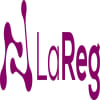Dive Brief:
- Last week, Washington Governor Jay Inslee (D) signed HB 1853 into law, making it possible for utilities to rate-base spending on electric vehicle charging station installations, Greentech Media reports.
- The new law will allow the state’s utilities to invest in the purchase and installation of charging stations and obtain the same guaranteed rate of return via customer bills that they would get from investing in power plants, transmission-distribution infrastructure and other assets that lead to electricity sales.
- The provision allowing utilities to be confident of benefit from charging infrastructure efforts was eliminated in Washington state’s energy conservation programs. There is an emerging realization among state regulators and other policy-makers that utilities are uniquely positioned to do the build-out necessary to adance EV adoption.
Dive Insight:
EVs represent a uniquely appealing value proposition in Washington state because so much its electricity is generated from hydropower, further diminishing the carbon intensity of electric vehicles.
Of the three ways to get electric vehicle chargers to big market scale, the consensus emerging among EV enthusiasts, ratepayer advocates, and business leaders is that utility leadership may be the best choice.
In 2011, President Obama proposed having a million EVs on U.S. roads by the end of this year but today there are perhaps 300,000. Only utilities have the money and people to give would-be electric vehicle buyers enough places to plug in to reach the President's goal, observers say.
“Utilities have to be the ones because it will take a longer time and cost more than a private company will give it,” explained Greenlots CEO Brett Hauser, whose company is working with Southern California Edison on a pilot charger installation. “Utilities can rate base the charging infrastructure upgrades and consider what is best for the community. Private sector financial concerns will focus the infrastructure on narrower, more affluent markets.”













